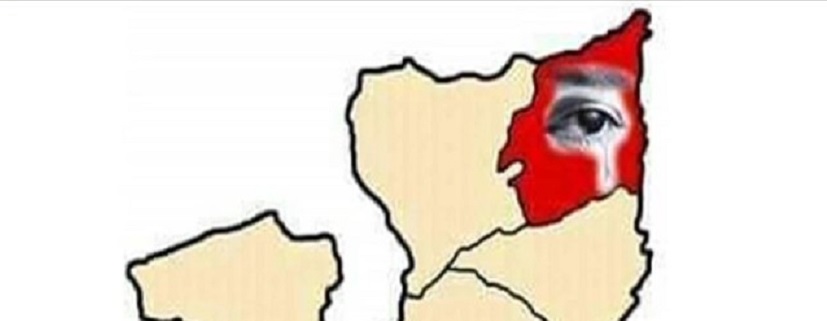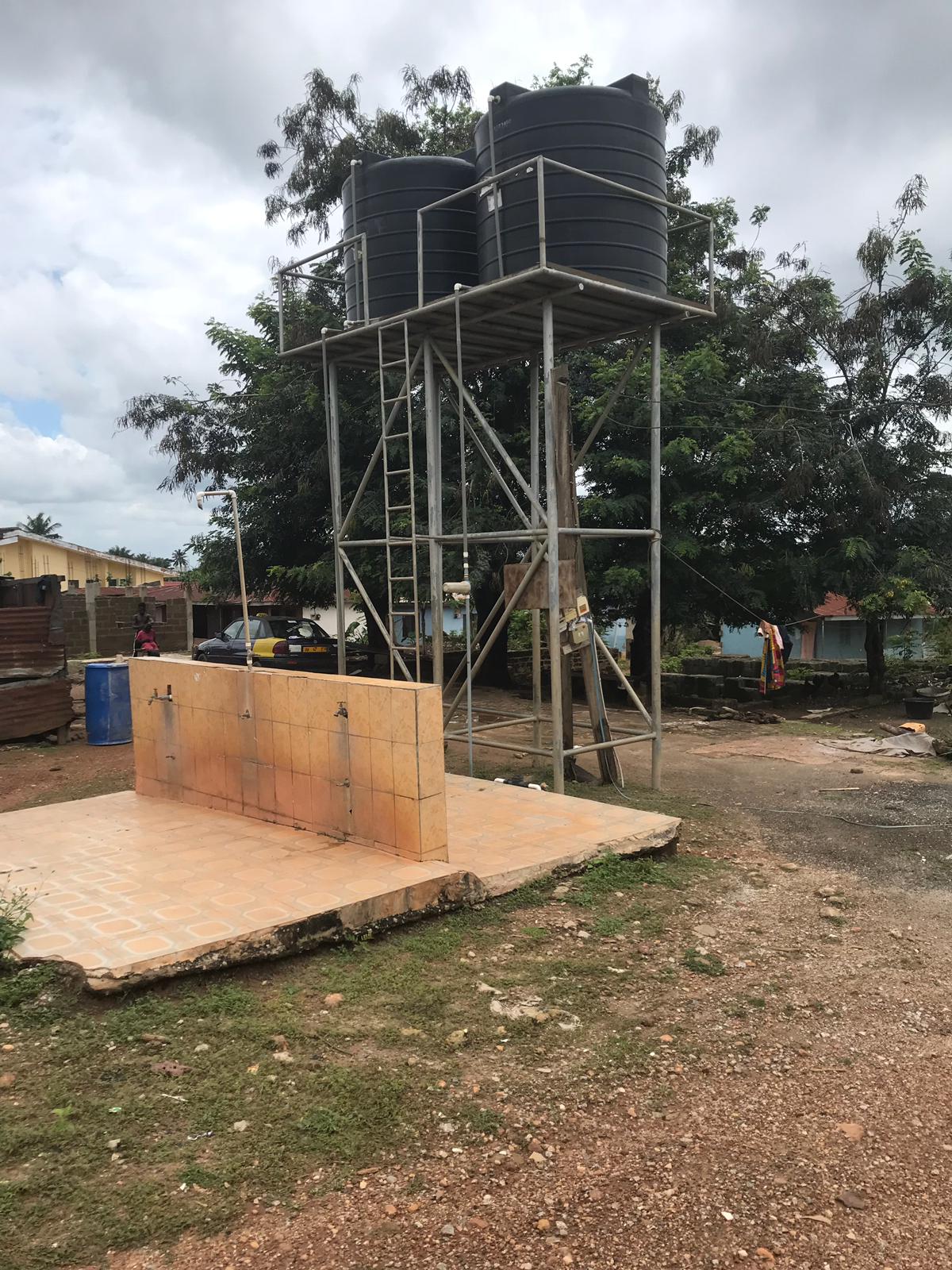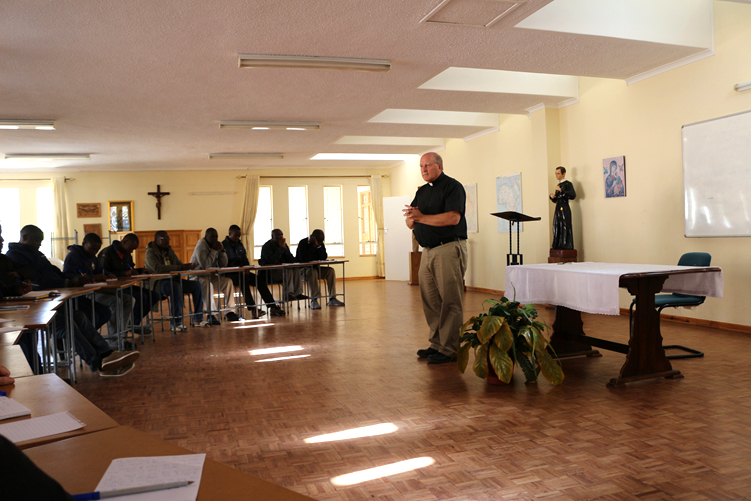I attended the annual Transformative Masculinities Workshop, which was held in Windhoek, Namibia from the 7th to the 11th of October 2013. This workshop is organized by, the Ecumenical HIV/Aids Initiative in Africa, (EHAIA). EHAIA is based in Harare and is an organ of the World Council of Churches. I have attended, presented at, and participated in, this workshop in Malawi 2010, Botswana 2011, Zambia 2012 and Namibia 2013. Already, workshops had been held in Swaziland 2009 and Lesotho 2008. This year’s workshop was attended by delegates from Namibia, Angola, South Africa, Lesotho, Zambia, Kenya and Zimbabwe.
I was invited by the Coordinator of EHAIA, Dr Sue Perry from our St Gerard’s Parish, to do a presentation on the psychology of male spirituality. I have done presentations on the foundations of masculine spirituality and “Father Wound.” I have recently added a presentation on Reimagining Gender Based Violence (GBV). Since I have presented at several workshops, I am now also helping the leadership team with facilitation during the workshop. Earlier this year, I was asked by the EHAIA team to represent them, and facilitate a workshop to establish a broad based men’s movement, in Botswana, as a follow up to the Transformative Workshop held in that country two years ago.
The Transformative Masculinities (TM) workshop emerged out of the realization that men, in general, were being left out in the many initiatives to combat HIV/Aids. More that being left out, men were being perceived and blamed as an obstacle in the fight against HIV/Aids. How men lived out their masculinity was seen as problematic. Dangerous masculinities were identified, seen to be prevalent, and recognized as having a negative impact on the work to fight against HIV/Aids. The need was seen, therefore, to transform these dangerous masculinities into more positives ways of being. Thus the concept of transformative masculinities was born.
The proponents of TM argue that there is no one way of being a man, instead there are many and varied masculinities. They further argue that some masculinities are dangerous to men, women and society at large. They believe that masculinities are, to a large extent, socially learned behaviors, beliefs and attitudes. As such, dangerous masculinities can be un-learnt and helpful and positive ones can be learned. Dangerous masculinities can be transformed into masculinities that benefit men, women and society.
In the HIV/Aids context, dangerous masculinities are beliefs, practices and attitudes that men have, which increase their susceptibility and vulnerability to the disease. Sometimes these attitudes are deeply rooted in religious, cultural and political systems. They can be age-old, venerated practices that men hold on to as a way of establishing their masculine identity. That they expose and increase men’s vulnerability to HIV/Aids makes these ideas about manhood dangerous.
TM interrogates the concepts of being a man that are taken for granted in church and society and challenges them on the basis of their role in the proliferation of the HIV/Aids scourge. TM believes and hopes that men can make the necessary adjustments in their self-concept as males in society in ways that can preserve them and protect women and children. TM engages, in a constructive and creative dialogue, with men from various backgrounds in an attempt to steer them towards a transformed masculinity.
The TM workshop comprises the EHAIA Team, several experts who give targeted presentations and men and women in various ecclesial and social leadership positions. Church leaders from the various member churches of the WCC are playing a very active role in the TM movement. Catholic leaders have also participated in a rather limited way. Women organizers, leaders, presenters and participants are a very important component of the TM workshop. In each hosting country presenters on the local culture and situation provide valuable input. Medical personnel play a very important role in leading and informing discussions on men’s health issues. Government and traditional leaders are an important constituent at the TM workshop. Staff from local universities come and provide cutting-edge reflections.
Some of the topics dealt with at the Namibia TM workshop are: Building A Human Rights Culture; The Making Of The Boy-Child; Culture And Tradition That Shapes (Namibian) Masculinity; Men As Fathers: Africa Fathers’ Initiative; Supporting Boys To Become Men; Men’s Health (And Lack Of Health-Seeking Beahviour); Alcoholism; Taking Action Against Rape; Working For Justice; Men And Violence; White Ribbon Campaign; Men And The Law: Lesotho Correctional Services; Men In The Armed Forces: Experiences And Challenges Of Chaplains; Role Of Women In Shaping Masculinities; Beyond The Classroom: Educating Boys And Girls About Gender-Based Violence; Men And Disability; The Father Wound; Engage Men: Namibia; Men And Leadership. Group and plenary discussions helped the participants to get deeper into these issues.
The Contextual Bible Study (CBS) method informs the theological reflection and shapes the devotional practice at a TM workshop. The daily CBS helps the participants to deepen their reflection and discussions through interacting with the scriptures in a way that the Word of God speaks to current reality, especially mens’ issues. It is hoped that church leaders can go on to use the CBS method in their congregations after the workshop, and individuals can apply the method in their own personal development.
I have personally benefited from the TM workshop. I am glad that from the onset I did not choose to go only on the day of my presentation. I have been able to stay the course of the whole workshop. My own self-understanding as a man has been transformed tremendously. My theology has been enriched by the opportunity to reflect on the reality of men in the context of HIV/Aids and other social ills such as GBV. As a Redemptorist, transformative masculinity is for me “redemptive” masculinity. I see our redemption as demanding the transformation of our masculinities. In the kingdom of God men are called to abandon dangerous masculinities and to embrace a new humanity, a transformed, redeemed masculinity.
In my work as a psychotherapist, I have used the tenets of TM to help men in psychological distress to get unstuck and move towards a more healthy, helpful and less stressful way of being a human being, or a transformed man. I have seen how dangerous masculinities cripple men and diminish their ability to be fully alive. I have been able to help men and women understand that human beings do not need to remain trapped inside dangerous masculinities, but can take steps to free themselves and one another.
The presenter on Namibian Culture and Masculinity concluded with the exhortation: “It is not enough to be men, we ought to be human.” The TM workshop is trying to raise the awareness of men in Southern Africa to their role in playing a positive part in the fight against HIV/Aids. TM sees men as important partners who have much to offer to complement the great work that the women’s movement has achieved in combating disease and poverty in this region. It is not enough to remain in our comfortable zone as men, but we must venture out and journey together with women and children towards a better humanity.
Submitted by William Guri.




